In the realm of women’s health, two conditions that often share the spotlight are endometriosis and irritable bowel syndrome (IBS). In fact, they both affect about 10 to 15% of individuals assigned female at birth.
While they may seem distinct at first glance, a complex interplay between these two conditions can leave individuals grappling with overlapping symptoms and diagnostic challenges. In this informative guide, we’ll navigate through the intricacies of endometriosis and IBS, shedding light on their connection, shared symptoms, and the importance of accurate diagnosis and tailored treatment.
The Intersection of Endometriosis & IBS

Endometriosis is a condition characterized by the presence of tissue similar to the uterine lining growing outside the uterus. This tissue can attach to various pelvic organs, including the ovaries and fallopian tubes, and even extend into the intestine. Consequently, individuals with endometriosis may experience symptoms such as severe abdominal pain, cramping, and abnormal bleeding.
IBS (Irritable Bowel Syndrome), on the other hand, is a gastrointestinal disorder that manifests with symptoms like abdominal pain, cramps, bloating, and altered bowel habits. These symptoms often disrupt daily life and can significantly impact an individual’s well-being.
For a deeper dive into IBS please read: What Is IBS?
Overlapping Symptoms

One of the complexities in distinguishing between endometriosis and IBS lies in the overlap of their symptoms. This symptom overlap can lead to confusion and frustration for individuals experiencing both conditions simultaneously.
Overlapping symptoms may include:
- Abdominal pain
- Cramping
- Diarrhea
- Constipation
- Changes in bowel habits
- Difficulties with bowel movements
Distinct Symptoms

While several symptoms overlap, there are some distinct to each condition:
- Endometriosis may present painful urination and nausea, which are not typically associated with IBS.
- Conversely, IBS can manifest with mucus in the stool, a symptom not commonly observed in endometriosis cases.
Do Not Self-Diagnose
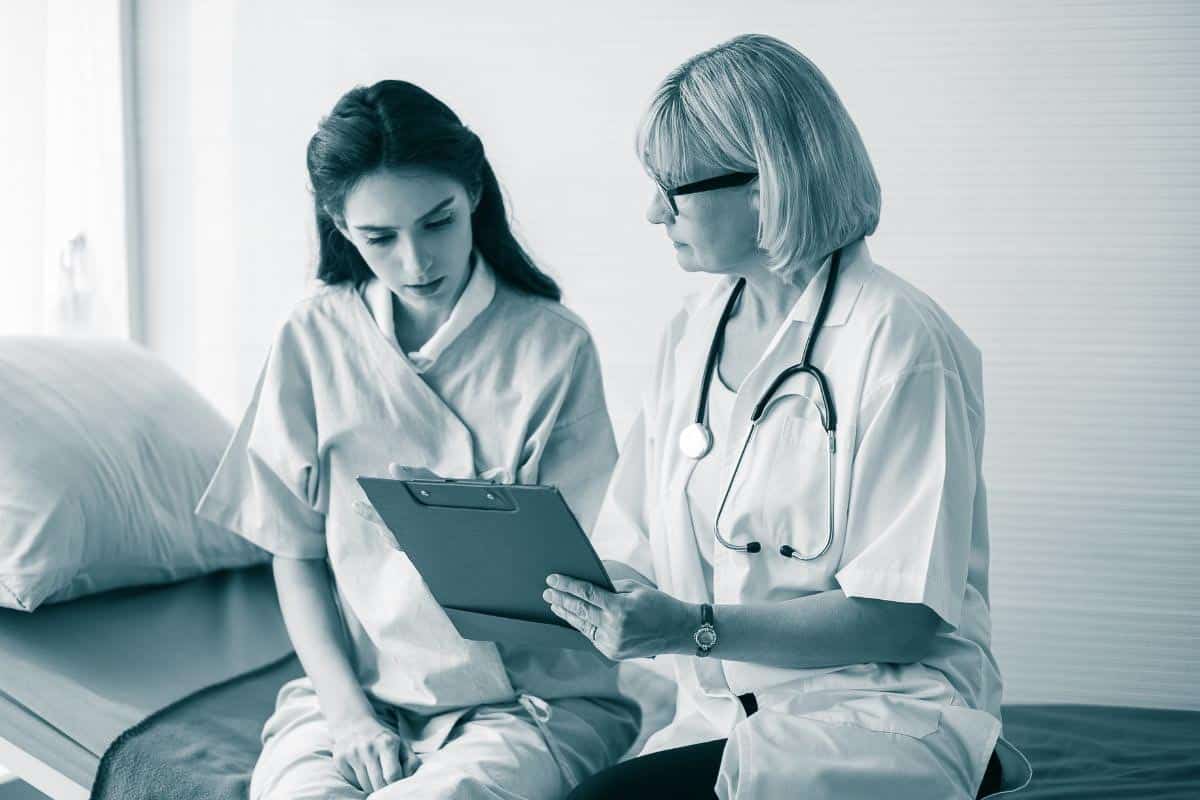
Medical doctors, such as gynecologists and gastroenterologists, can help with accurate diagnosis. Let’s look more closely at what each medical condition can present.
Read: IBS: Step-by-Step Guide from Diagnosis to Symptom Free Living
Endometriosis Symptoms
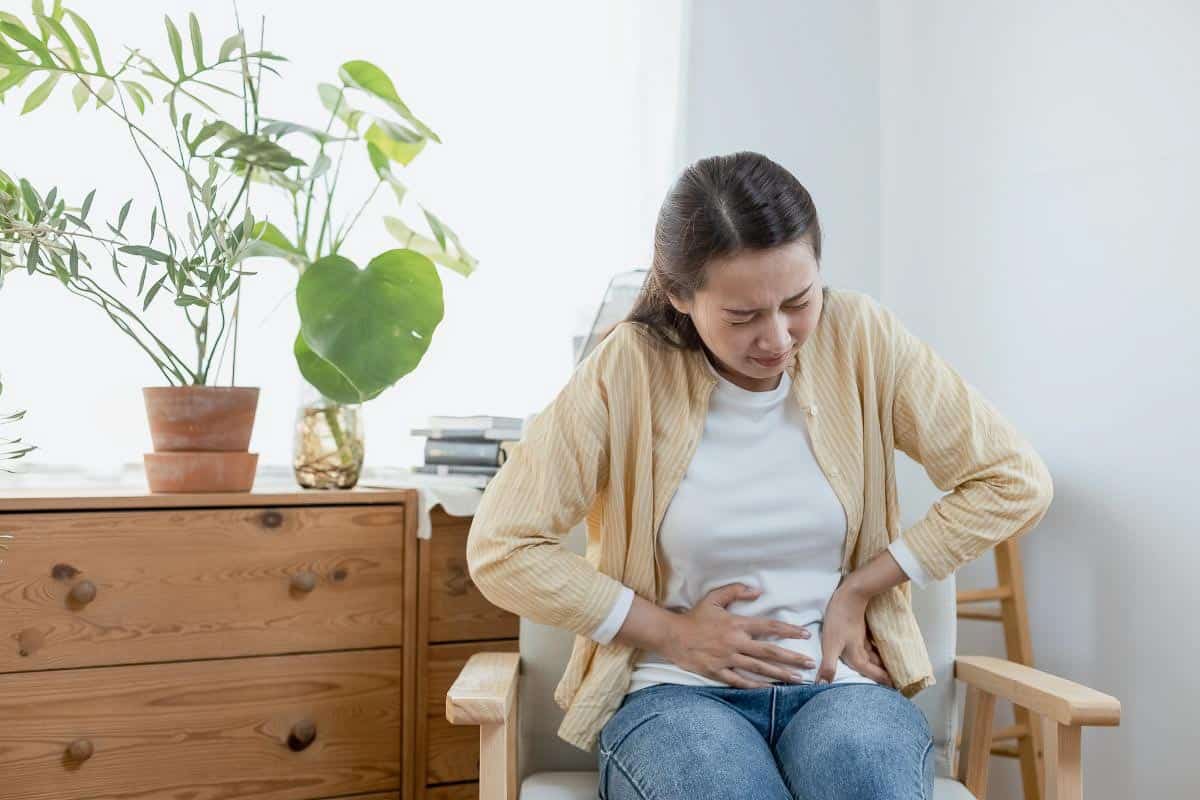
Here are more detailed symptoms of endometriosis:
- Strong abdominal pain and cramping (particularly during your period, but potentially also present throughout your cycle)
- Bleeding between periods
- Difficulty having and/or pain during a bowel movement
- Nausea, diarrhea, and/or vomiting (especially when pain and cramping are severe)
- Bladder symptoms (e.g., pain, trouble urinating)
- Pain during or after sexual intercourse
IBS Symptoms

Here are more detailed symptoms of IBS:
- Upper abdominal pain and cramping
- Pain that worsens with food and/or stress
- Fullness, bloating
- Constipation, diarrhea, or both
- Mucus in the stool
- Feeling the urgent need to have a bowel movement
- Feeling like you still need to go more after having a bowel movement
While there are shared symptoms, the unique characteristics of each condition make it essential to differentiate between them accurately, and that is what a medical doctor can help distinguish.
Unraveling the Connection
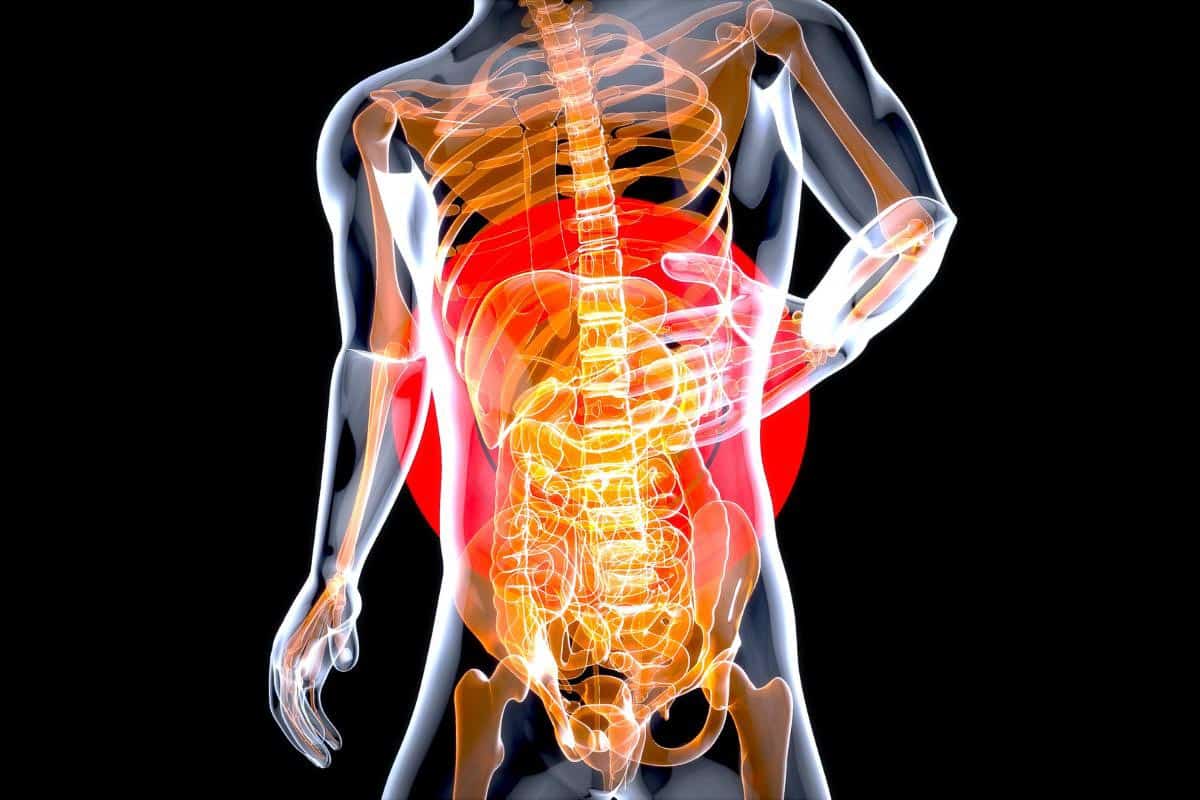
Can endometriosis lead to IBS-like symptoms? How can we distinguish between the two?
Endometriosis growths (lesions) play a pivotal role in causing IBS-type symptoms. Here are some key mechanisms:
1. Tissue Inflammation: Endometrial-like tissue that exists outside the uterus cannot be shed during a menstrual period. Over time, this tissue can become inflamed, leading to discomfort and the formation of scar tissue (adhesions) and cysts.
2. Hormonal Influence: The hormones responsible for the monthly buildup of the uterine lining also stimulate the growth of endometrial lesions. This dual hormonal impact fosters tissue growth, its spread to other parts of the body, and the exacerbation of symptoms. Read: Hormones & IBS: Strategies to Improve Hormone Induced IBS Symptoms
3. Recurrence: Even after the removal of lesions, they can reappear if hormonal activity persists.
The IBS Misdiagnosis
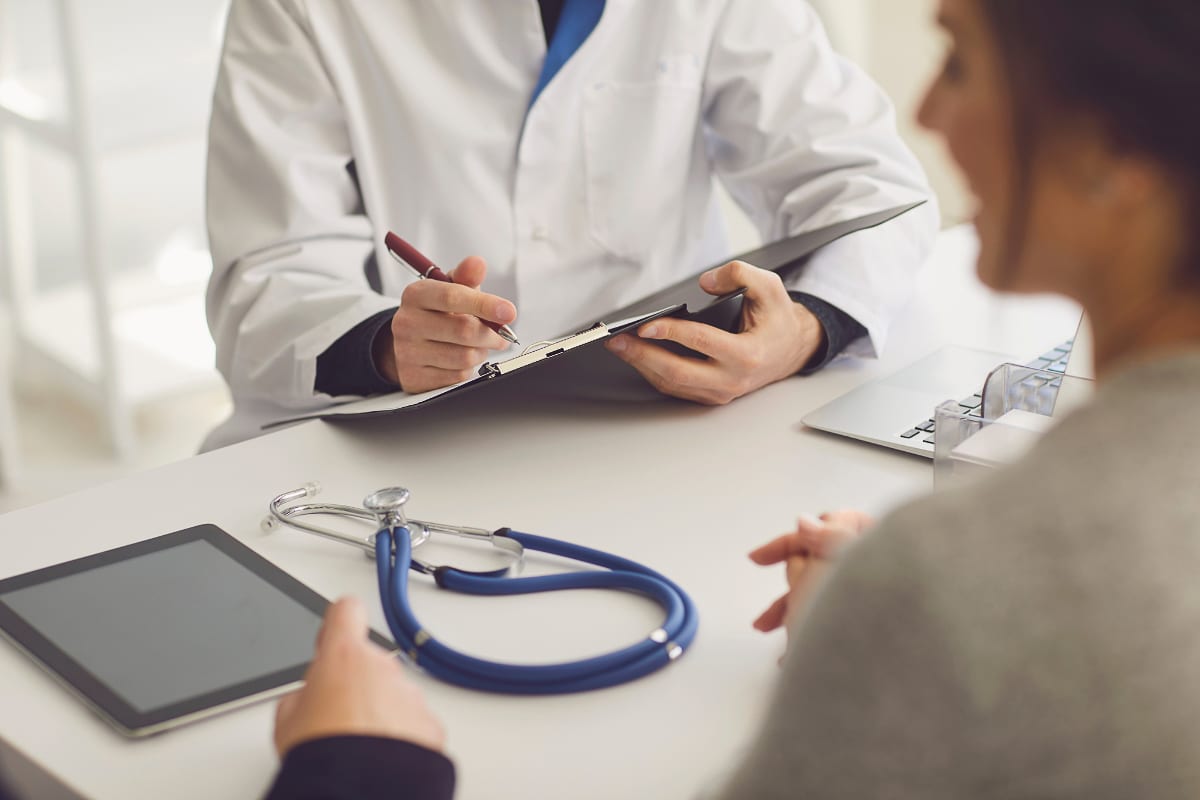
Given the complexity and invasiveness of the diagnostic process, some individuals with endometriosis may be mistakenly diagnosed with IBS if they exhibit symptoms such as abdominal pain and bloating.
Navigating Diagnosis

If you suspect you have both endometriosis and IBS, an accurate diagnosis is crucial. Only a healthcare provider, typically a specialist, can confirm whether you have both conditions, and if your gastrointestinal symptoms stem from endometriosis affecting your bowel.
Keeping a journal of symptoms is very helpful for your doctor.
Read: IBS: Step-by-Step Guide from Diagnosis to Symptom Free Living
Timing of Symptoms

Pay attention to the timing of your symptoms. Endometriosis symptoms often follow a cyclical pattern tied to the menstrual cycle. For instance, symptoms may intensify just before menstruation. Recognizing this pattern can hint at endometriosis flaring up.
Symptom Triggers

IBS symptoms may worsen during specific phases of your menstrual cycle, but dietary and stress factors can also trigger flare-ups. If certain foods consistently provoke GI symptoms, it may suggest IBS. You may want to read: The Hidden Culprits: 12 Common Triggers of IBS You May Not Know About
If you haven’t received an IBS diagnosis alongside endometriosis, it’s essential to discuss your gastrointestinal symptoms with a healthcare provider. They will consider your overall health, family medical history, and the specifics of your symptoms. Additionally, they may evaluate your symptoms against the Rome criteria, a set of criteria used to diagnose IBS and related gastrointestinal disorders.
Testing

While there are no definitive blood tests or scans for IBS, tests like rectal exams, stool cultures, and colonoscopies may be ordered to rule out other potential causes of your symptoms.
Symptom Tracking

Journaling can help with diagnosis, and it can also help with designing a treatment plan. Your notes can help identify patterns that aid in managing both conditions effectively.
Questions to Ask Your Doctor

Come to your appointment prepared, not just with a journal, but with questions. Write them down so that you don’t forget:
- What are the potential causes of my symptoms?
- What diagnostic tests are necessary, and how should I interpret the results?
- What is the recommended treatment plan?
- Are there specific dietary recommendations for IBS?
- Are there lifestyle modifications to consider for endometriosis?
- What are the possible side effects of prescribed medications?
- When can I expect an improvement in my symptoms?
- Are there long-term complications associated with my condition?
You may want to also read: Patient Dos and Don’ts For a Great Telehealth Appointment
Treatment Strategies

Treating one condition can have a positive impact on the other, helping you pinpoint the source of specific symptoms:
IBS Treatment

Managing GI symptoms suspected to be related to IBS may involve a combination of prescription medications, over-the-counter products, home remedies, and lifestyle modifications, such as the low FODMAP diet. Consult your healthcare provider to devise an optimal treatment plan tailored to your needs.
Endometriosis Treatment

If your GI symptoms are linked to endometrial lesions in or on the bowel, surgical removal of these growths may be necessary. Surgery can also address adhesions that cause organs to adhere, potentially leading to complications and infections.
In severe cases of endometriosis involving extensive bowel damage, surgical removal of a portion of the bowel may be required, particularly if it coincides with the removal of reproductive organs like the uterus, fallopian tubes, and ovaries.
In Summary

Endometriosis can indeed induce GI symptoms resembling those of IBS, such as abdominal pain and cramping. However, these two conditions necessitate distinct approaches to diagnosis and treatment. If you suspect you have both conditions and/or share symptoms, seek evaluation from a healthcare provider. Accurate diagnosis and targeted treatment strategies are essential to improving your quality of life and managing these complex health challenges.
You may want to read the below articles:
Hormone-Induced IBS Symptoms: Strategies for Relief

In the realm of managing irritable bowel syndrome (IBS), understanding the intricate connection between hormones and gastrointestinal health is crucial. If you’ve ever noticed that your IBS symptoms tend to worsen at specific times during your menstrual cycle, you’re not alone. This article delves into the impact of hormones on IBS symptoms and provides actionable strategies to alleviate hormone-induced gut distress. Read: Hormone-Induced IBS Symptoms: Strategies for Relief
IBS & Periods – How Does Your Period Impact Your Gut?
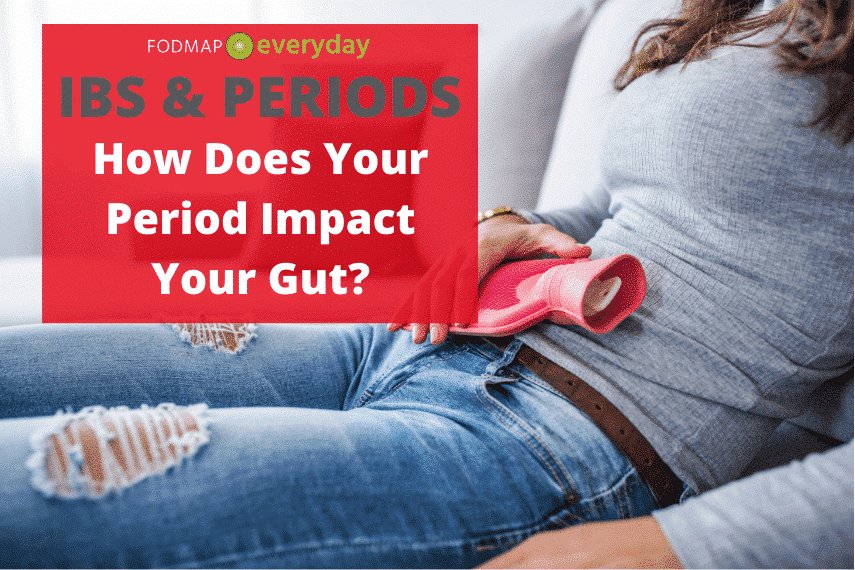
Have you noticed that your IBS symptoms worsen around your period? You are not alone!
Due to hormonal changes around that time of the month, your gut will become more sensitive. You may also notice that some of your own lifestyle habits change.
Read: IBS & Periods – How Does Your Period Impact Your Gut?
Menopause and IBS: What’s Happening & What to Expect
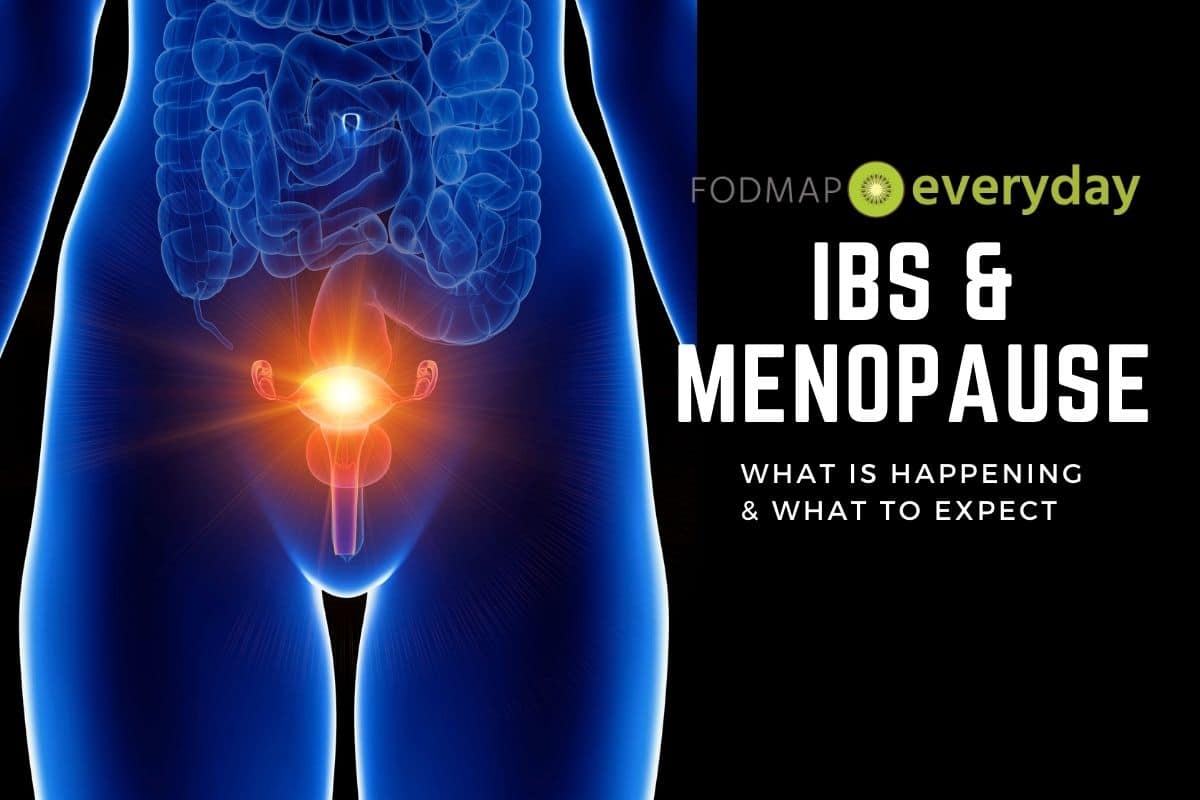
In this article we explore the relationship between menopause and IBS. What is menopause, are gut issues affected during this time, and what can be done to help alleviate symptoms?
Read: Menopause and IBS: What’s Happening & What to Expect
Common Digestive Health Issues in Older Adults

As the population worldwide continues to live longer, approximately 14.5% of those living in the United States are categorized as older adults or over 65.1 There seems to be a lot of information available for adults living with digestive conditions, but we do not hear as much about the older adult population.
Read: Common Digestive Health Issues in Older Adults
Why Bread In Europe Doesn’t Upset My Stomach Or Make Me Bloat

According to studies in the World Journal of Gastroenterology, about 6% of the world’s population is sensitive to gluten. Non-celiac gluten sensitivity, referred to as NCGS, is different from celiac disease, where the person has an autoimmune reaction involving IgA antibodies upon ingesting gluten.
Read: Why Bread In Europe Doesn’t Upset My Stomach Or Make Me Bloat







